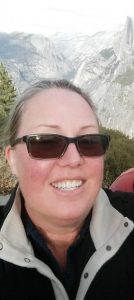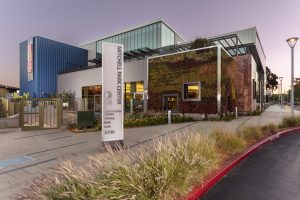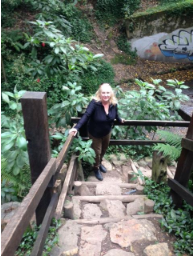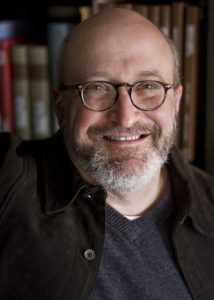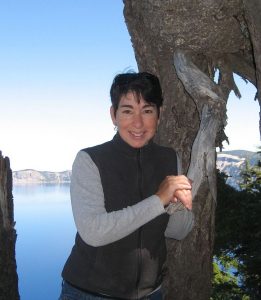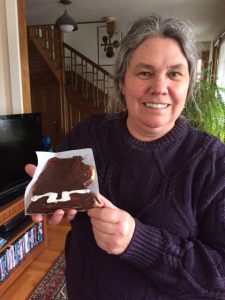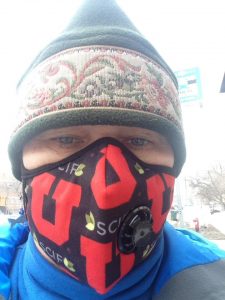May 13-14, NYU
By Amy Brunvand
It may be that when we no longer know what to do, we have come to our real work. –Wendell Berry
At the recent Libraries and Archives in the Anthropocene Colloquium held at New York University (LAAC17 for short), Hurricane Sandy was on the minds of many Librarians. They weren’t just worried about how to protect valuable collections from rising sea levels, they were also developing ideas about how libraries could help people in disaster zones. If the library-of-the-future is a community center, the thinking went, then librarians need to think long and hard about how to serve communities caught in the crisis of global climate change.
The “Anthropocene,” in case you aren’t up on geological technical jargon, refers to a global layer of sediment deposited by human activity, a deep-time marker of what Elizabeth Kolbert calls “The Sixth Extinction” (2014). The idea has become a potent metaphor for a world where human beings are a geological force of deposition and erosion, though let’s be clear, human influence doesn’t put people in the driver’s seat. The reason we need a concept like sustainability is because the terrifying alternative is systems collapse.
So the experience of attending LAAC17 was a little bit like combining a librarians’ conference with a speculative science fiction novel. In fact, the keynote delivered by Roy Scranton cited various works of science fiction in order to consider possible Anthropocene futures. Scranton is the author of “Learning to Die in the Anthropocene: Reflections on the End of a Civilization” (2015), which I have not yet read, but it’s going straight to the top of my list.
Library collections are also metaphors for the Anthropocene as librarians struggle to both preserve information about a vanishing past and to support generation of new knowledge to cope with an uncertain future. The fragility of the electrical grid is worrisome, and yet a large-scale digital library like Hathi Trust is packed with information about pre-digital, regionally appropriate ways of doing things. Rick Prelinger, curator of the eponymous Prelinger Library, sparked discussion with his talk on Collecting Strategies for the Anthropocene. “We exist to oppose presentism,” he said, noting that “appraisal decisions often look short-sighted a few years after they are made.” But he added that social action often results from erasures that we hope to repair.
Social action was the theme of Saturday’s field trip to the Interference Archive, an open stacks collection in Brooklyn that holds materials created by people working for social transformation in order to encourage creative engagement with history and current struggles. The website notes, “We consider the use of our collection to be a way of preserving and honoring histories and material culture that is often marginalized in mainstream institutions. All members of our community are welcome and encouraged to shape our collection and programming.” Perhaps other archives could adopt this kind of community-driven mission.
Still, there must be a balance between access and preservation. Recently librarians like Laurie Allen have been involved in data rescue, rushing to save U.S. government data on climate change before it is “disappeared” by the Trump administration. Nonetheless, public involvement can nudge policy in the right direction and law librarian Sarah Lamdan discussed ways to help people access environmental information from government sources and take advantage of legally required public comment periods.
Resilience and adaptation are two concepts deeply connected to a sense of place, and scholars in the Environmental Humanities are breaking new ground in our understanding of what it means to live in place. Indeed, many of the presentations on place-based themes crossed the boundary from librarianship to art. The Next Epoch Seed Library documents weedy urban lots; the trees needed to print Future Library 2114 have only just been planted; The Library of Approximate Locations examines our relationships to natural resources; and GHG.EARH makes the sound of climate change.
And of course, there are the traditional library responses of programming, collections, displays, and reference help to connect people with essential information. At coffee breaks and over dinner I heard many participants say how relieved they felt to be among like-minded people. A dominant story of the future of libraries has been about consolidation, deaccessioning and the rise of big, shiny technology (one group of presenters got a big laugh by deriding a list of buzzwords from the Center for the Future of Libraries as a “library conference bingo”). But at LAAC17 the core question was, what it would mean to if we truly believe that libraries are symptoms of democracy and civilization? Amanda Avery suggested “steampunk” as a word to describe the fusion of high/low tech that defines libraries for the Anthropocene. Robots? How about people. Digital natives? How about indigenous knowledge. Maker movement? How about re-skilling. Gamification? How about writing your own story. Anonymity? How about community.
Libraries and Archives in the Anthropocene: A Colloquium was hosted by projectARCC and Litwin Books, LLC at NYU, May 13-14, 2017. Many thanks to the planning committee: Casey E. Davis Kaufman, Madeleine Charney and Rory Litwin. The event was live-streamed, and presentations are available to view online at https://www.facebook.com/events/638779516326338/
